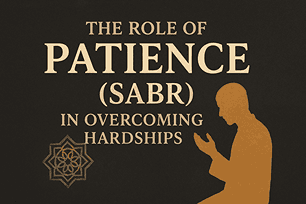Importance of Salah: Why Prayer Is the Key to Success

Introduction
In Islam, Salah holds a position unlike any other act of worship. It is the second pillar of Islam and a daily reminder of the believer’s relationship with Allah. Through prayer, the heart finds peace, the soul gains strength, and life becomes aligned with divine guidance. Although worldly responsibilities often demand much attention, the one who establishes Salah consistently finds success both in this life and in the Hereafter.
This article explores why prayer is considered the key to success, how it transforms a believer’s inner self, and why neglecting it leads to spiritual loss.
The Central Role of Salah in Islam
Salah is more than a ritual; it is a connection between the Creator and His servant. It distinguishes a believer from a non-believer, as the Prophet Muhammad (PBUH) said: “The covenant which distinguishes between us and them is prayer. So whoever leaves it has committed disbelief.” This highlights the weight Salah carries in the life of a Muslim.
Unlike other forms of worship that occur occasionally, Salah is repeated five times a day. This regularity disciplines the heart and mind, creating a life anchored in remembrance of Allah. When a Muslim prays, distractions are left behind, and focus shifts toward divine mercy and guidance. This constant turning to Allah protects the believer from arrogance and self-reliance.
Salah as the Source of Inner Peace
Every human soul longs for tranquility. Despite material wealth, many people remain restless, searching for meaning. Salah provides that missing peace. Allah says in the Qur’an: “Indeed, in the remembrance of Allah do hearts find rest.” (Surah Ar-Ra’d 13:28). Prayer is that remembrance in its most complete form.
Through bowing and prostrating, the believer experiences humility and comfort. Each position of Salah brings calmness, while reciting the Qur’an during prayer strengthens the heart. Anxiety, stress, and sadness lose their weight when carried to Allah in prayer. Thus, Salah becomes not just an obligation but a healing refuge.
Building Discipline and Time Management
Success in life requires discipline, and Salah trains Muslims in this essential quality. Prayers are fixed at specific times: Fajr at dawn, Dhuhr at noon, Asr in the afternoon, Maghrib at sunset, and Isha at night. Observing these times develops punctuality and responsibility.
The believer who organizes life around Salah instead of squeezing Salah into a busy schedule begins to witness barakah (blessing) in time. Tasks that once seemed overwhelming become manageable. Consistency in Salah teaches commitment, reminding the believer that success lies in fulfilling responsibilities on time.
Strengthening Faith and Taqwa
True success is not only material but spiritual. Salah nurtures taqwa, or God-consciousness. Standing before Allah several times a day reminds the believer of accountability in the Hereafter. When faith grows, sins lose their attraction.
Allah describes Salah as a shield: “Indeed, prayer prohibits immorality and wrongdoing.” (Surah Al-Ankabut 29:45). This verse shows that Salah directly impacts behavior. A person who prays with sincerity is less likely to lie, cheat, or harm others. The inner connection with Allah motivates righteousness and purifies the heart from arrogance and pride.
Salah as the Key to Worldly Success
While many see Salah as only a spiritual duty, it also leads to success in worldly affairs. A disciplined, focused, and peaceful individual is better equipped to handle challenges in studies, work, and family life.
History shows that the greatest Muslim leaders and scholars were consistent in Salah. Their strength and wisdom flowed from their devotion. The Prophet Muhammad (PBUH), despite leading armies and guiding nations, would seek refuge and strength in prayer. He said: “The coolness of my eyes is in prayer.”
When believers maintain Salah, blessings enter their sustenance, families, and communities. Success is no longer measured only by wealth but by stability, contentment, and lasting happiness.
Neglecting Salah and Its Consequences
Just as Salah brings success, neglecting it leads to loss. Missing prayers creates a gap between the servant and Allah, allowing sins and weaknesses to grow. The Qur’an warns of those who abandon prayer: “But there came after them successors who neglected prayer and pursued desires; so they are going to meet evil.” (Surah Maryam 19:59).
A heart deprived of prayer becomes restless. Despite worldly achievements, emptiness remains. Over time, neglecting Salah weakens faith, distances the soul from Allah, and removes barakah from life. This is why scholars emphasize that protecting Salah is protecting the entire faith.
Practical Steps to Establish Salah Firmly
Many believers desire consistency in prayer but struggle with laziness, distractions, or busy schedules. With effort and sincerity, these struggles can be overcome. Some practical steps include:
-
Make the Intention Strong – Remind yourself that Salah is the key to success and the first deed to be accounted for on Judgment Day.
-
Set Clear Reminders – Use alarms or prayer apps to avoid forgetting prayer times.
-
Pray in Congregation – Attending the mosque, especially for men, builds a routine and strengthens motivation.
-
Understand the Meanings – Reflecting on Qur’anic verses recited in prayer deepens concentration and love for Salah.
-
Seek Forgiveness When You Slip – Missing a prayer should never lead to giving up. Repent quickly and return to consistency.
By following these steps, prayer becomes a natural and beloved part of daily life.
Salah as the Gateway to Eternal Success
Ultimately, true success is not measured by status, wealth, or possessions but by salvation in the Hereafter. The Prophet (PBUH) said: “The first thing a servant will be held accountable for on the Day of Judgment is his Salah. If it is sound, the rest of his deeds will be sound. If it is not, the rest of his deeds will not be sound.” (Hadith – Tirmidhi).
This hadith clearly shows that Salah is the foundation of all deeds. A believer who preserves prayer builds a strong foundation for eternal happiness. Paradise becomes the reward for those who establish Salah sincerely and consistently.
Conclusion
Salah is not a burden but a blessing, not an interruption but a source of peace and strength. It nurtures faith, disciplines time, protects from sin, and invites blessings in every aspect of life. Without it, the believer’s journey remains incomplete, and with it, both worldly and eternal success are achieved.
Prayer is the believer’s key to success because it connects the weak human soul to the Almighty Creator. It transforms stress into tranquility, weakness into strength, and uncertainty into hope. By protecting Salah, a Muslim protects faith, family, and future. The one who bows down to Allah five times a day rises with honor in this world and the next.













Post Comment